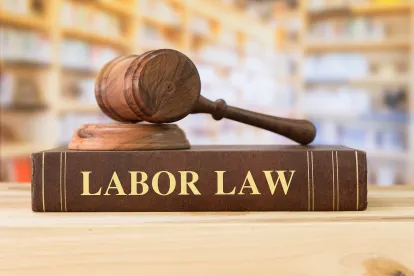- A Texas federal judge struck down the National Labor Relations Board’s new joint-employer rule. U.S. Chamber of Commerce v. NLRB, No. 6:23-cv-00553 (E.D. Tex. Mar. 8, 2024). The rule sought to broaden the Board’s prior standard by finding joint-employer status where an entity possesses the authority to control at least one of seven enumerated essential terms and conditions of employment, regardless of whether the entity actually exercises that control. It was set to take effect March 11 after two previous delays. The court issued its order following oral arguments between the Board and a coalition of business groups led by the U.S. Chamber of Commerce, which argued the rule is unlawfully overbroad. Whether the Board will appeal the ruling is uncertain. For now, the Board’s prior 2020 rule requiring “direct and immediate control” remains in effect. Litigation over the rule is ongoing in the U.S. Court of Appeals for the D.C. Circuit between the Board and the Service Employees International Union (SEIU), which seeks to broaden the scope of the Board’s proposed rule.
- Collective bargaining agreements (CBAs) negotiated in 2023 yielded the highest average pay raises in decades, according to a Bloomberg Law report. Union contracts provided workers an average first-year wage increase of 6.6%. With signing bonuses and other lump-sum payments, the average increase jumped to 7.3%. The calculations are based on more than 950 CBAs ratified in 2023 that cover 2.8 million union-represented workers. Contracts negotiated in 2022 provided a 5.7% average increase, and 2021 contracts averaged a mere 3.7% increase. Although raises were higher across all sectors, the largest wage increases occurred in state and local government union contracts.
- Board prosecutors urged the Board to expand remedies for unlawful work rules or contract terms. United Wholesale Mortgage, LLC d/b/a UWM Financial Services, LLC, 07-CA-297897 (Mar. 18, 2024). In a filed brief, prosecutors argued that when the Board finds an unlawful work rule or contract term, such as in an employment or severance agreement, it should include as part of its make-whole relief an order requiring the employer to expunge any imparted employee discipline or retract past enforcement of the rule or term. The brief argues that “mere rescission of the unlawful provision — without unwinding any attendant discipline or enforcement” is not sufficient for employees’ relief. While the brief focuses on the work rules’ and contract terms’ substance, prosecutors noted the expanded remedies should also apply when an employer discriminately applies the rule(s).
- The Board and the Equal Employment Opportunity Commission (EEOC) plan to issue joint guidance regarding workplace profanity during union activity. The planned guidance stems from the Board’s 2023 decision returning to its setting-specific standard for determining whether an employer lawfully disciplines employees whose protected concerted activity crosses the line into abusive conduct. That standard arguably provides employees more license to make abusive or offensive comments while engaging in putatively protected concerted activity. However, the standard creates significant conflict between Board law and workplace discrimination and harassment laws. Joint guidance from the Board and EEOC would aim to resolve this conflict and provide needed clarification for employers.
- Board members urged President Joe Biden to fill the vacant Republican Board seat. During an American Bar Association conference, the Board’s four current members urged the president to fill the seat as soon as possible to help the agency work through its heavy workload and provide more diverse viewpoints. The Board currently has a 3-1 Democratic majority, and it has been without a second Republican member since December 2022, when Board Member John Ring retired. President Biden has not appointed a replacement despite the Senate confirming Democratic Board member Gwynne Wilcox to a second term in September 2023. Although Senate Democrats assured Republicans during Wilcox’s confirmation vote that a Republican nominee would soon follow, it has yet to happen. The vacancy means each three-member panel selected to rule on a case has had a Democratic majority.
Top Five Labor Law Developments for March 2024
Thursday, April 11, 2024
Current Public Notices
Published: 25 August, 2025
Published: 25 August, 2025
Published: 25 August, 2025
Published: 25 August, 2025
Published: 22 August, 2025
Published: 20 August, 2025
Published: 20 August, 2025
Published: 18 August, 2025
Published: 18 August, 2025
Published: 18 August, 2025
Published: 15 August, 2025
Published: 14 August, 2025
Published: 12 August, 2025
Published: 11 August, 2025
Published: 8 August, 2025







 />i
/>i
